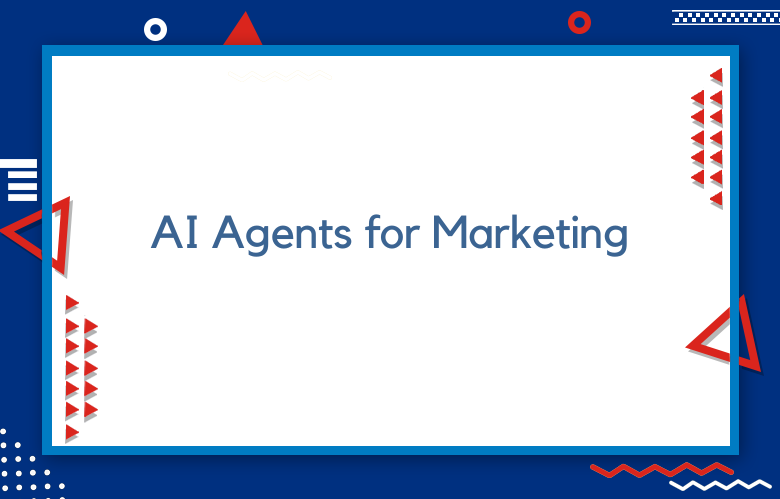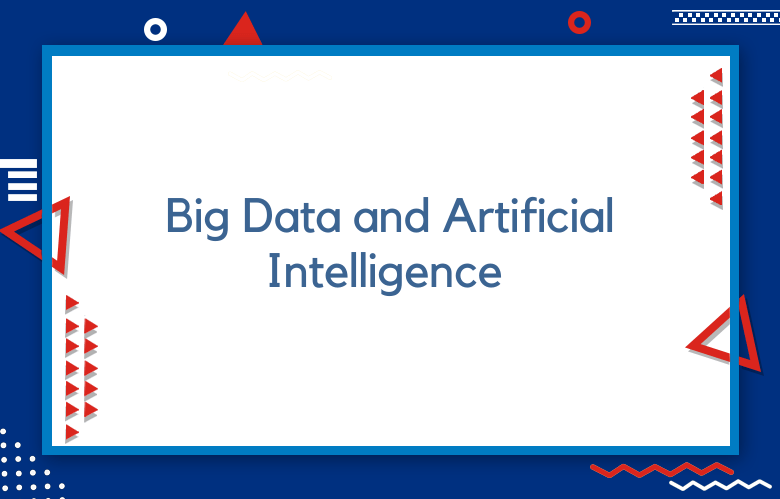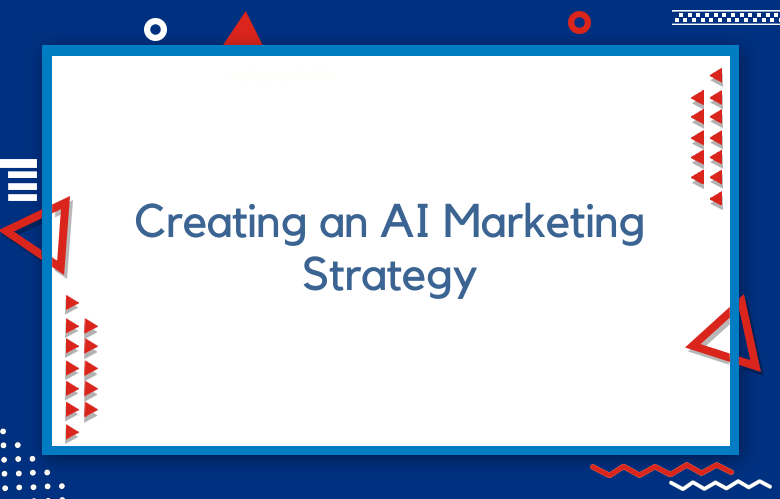AI Agents for Marketing: Elevating Customer Experience & ROI

- Key Takeaways
- The Role of AI in Marketing
- Personalization with AI Agents
- Enhancing Customer Experience
- Boosting ROI through AI
- Campaign Optimization Techniques
- Overcoming Challenges in AI Implementation
- No-Code Tools for AI Creation
- Future Trends in AI Marketing
- Closing Thoughts
- Frequently Asked Questions
- What are AI agents in marketing?
- How can AI improve personalization in marketing?
- What benefits do AI agents bring to customer experience?
- How does AI boost ROI in marketing?
- What techniques exist for optimizing marketing campaigns with AI?
- What challenges might businesses face when implementing AI in marketing?
- Are there no code tools available to create AI solutions in marketing?
AI agents for marketing are changing the game. These intelligent tools, including integrated AI systems, product marketing AI, and an AI chat assistant, can analyze data, predict trends, and engage customers like never before. Businesses use integrated AI systems and practical marketing AI tools to boost sales and improve customer experiences.
AI agents can handle everything from automating social media posts to personalizing email campaigns. They save time and resources while delivering impressive results. Companies leveraging AI in their marketing efforts see higher efficiency and better ROI. Embracing these technologies like AI tools and custom marketing agents is no longer optional; it’s essential for staying competitive in today’s fast-paced market.
Key Takeaways
- Embrace AI in marketing to streamline processes and improve overall efficiency, as highlighted in the section on the role of AI in marketing.
- Utilize AI agents for personalization, tailoring your marketing messages to meet each customer’s unique needs, which can lead to better engagement.
- Focus on enhancing customer experience by leveraging AI tools that provide quick responses and support, ensuring customer satisfaction.
- Consider AI as a way to boost ROI; data shows that companies using AI-driven strategies see significant improvements in their financial outcomes.
- Explore no-code tools for creating AI solutions, making it easier for marketers without technical backgrounds to harness the power of AI.
The Role of AI in Marketing
Data Analysis
AI marketing agents analyze vast amounts of consumer data. They identify trends and insights that help in targeted marketing. For example, an effective marketing AI tool can sift through social media activity to find what customers like. This data helps businesses tailor their messages to specific audiences.
Marketers can use these insights to build personalized campaigns. Such campaigns tend to attract more attention and drive sales. By understanding consumer behavior, companies can adjust their strategies effectively.
Task Automation
AI solutions automate repetitive marketing tasks, allowing marketers to focus on strategic decision-making.
With automation, teams save time and resources. They can concentrate on creative aspects rather than mundane chores. For instance, an autonomous marketing team can utilize AI writing tools to generate ad copy quickly.
Predictive Analytics
Predictive analytics enhances campaign effectiveness. AI models forecast consumer behavior based on historical data. For example, a powerful AI marketing agent can predict which products will trend next season.
Marketers can adjust their campaigns accordingly. By anticipating trends, they stay ahead of the competition. Using predictive analytics leads to better resource allocation and higher returns on investment.
Enhanced Decision-Making
AI marketing tools provide valuable insights for decision-making. They compile data from various sources and present it in easy-to-understand formats, helping marketers make informed choices quickly.
For instance, an AI marketing agency tool might show which ads perform best across platforms. With this information, marketers can optimize their budgets for maximum impact.
Improved Customer Engagement
AI agents improve customer engagement through personalized interactions. They analyze user behavior to suggest products or services that fit individual needs in the market using an AI agent. This level of personalization creates a better experience for consumers.
Using product marketing AI, businesses can send targeted offers directly to customers. These tailored messages increase the chances of conversion and foster customer loyalty.
Cost Efficiency
Implementing AI solutions in marketing can lead to cost savings. Automating tasks reduces labor costs while increasing productivity. By leveraging AI technologies, companies can achieve more with fewer resources.
Investing in AI marketing models pays off in the long run. Businesses that adopt these tools often see improved performance and lower operational costs.
Personalization with AI Agents
Audience Segmentation
Various AI agents can analyze consumer behavior. They segment audiences based on detailed data. For example, marketers can identify preferences, interests, and purchasing habits. This information helps tailor marketing messages. Custom AI agents ensure that each message resonates with the right audience.
Focusing on specific groups can improve engagement rates, which increase when consumers feel understood.
Machine Learning Algorithms
Machine Learning algorithms can learn from data patterns over time. They refine personalization strategies continuously. As more data is collected, the systems become more brilliant.
For instance, a custom marketing agent might track how users interact with content. If a user frequently clicks on sports-related articles, the agent will prioritize similar content in the future. This adaptability makes marketing efforts more effective.
Real-Time Recommendations
AI chat assistants deliver real-time content recommendations. They analyze user behavior instantly and suggest relevant products or services using an AI agent. For example, an integrated AI system might recommend matching accessories if customers browse shoes online.
These recommendations are based on individual consumer preferences. When users receive personalized suggestions, they are more likely to purchase.
Customizable Agents
Customizable agents allow businesses to tailor their functionalities. Companies can modify these agents to meet their specific needs. This flexibility enhances agent capabilities significantly.
Businesses can decide what features are most important for their marketing goals. Some may focus on customer service, while others might prioritize sales conversions. The ability to deploy AI agents effectively leads to better results.
Autonomous Agents
Once set up, autonomous agents operate independently. They handle tasks without constant human intervention. These agents can manage customer inquiries or send follow-up emails automatically.
Integration of AI Systems
Integrating multiple AI agents into existing systems enhances overall effectiveness. Businesses can combine different types of agents for various functions. For example, an app AI assistance may work alongside an AI chat solution.
This integration provides a seamless user experience, ensuring consistent messaging across platforms while maximizing reach and impact.
Enhancing Customer Experience
Chatbots
They provide instant responses to inquiries, which enhances engagement and satisfaction. For example, a customer might ask about product availability. The chatbot can quickly provide the needed information.
Businesses can implement chatbots on various platforms, such as websites and social media. These tools are available 24/7, and customers appreciate quick answers at any time. Chatbots also reduce the workload on human agents. They handle simple queries, allowing staff to focus on complex issues.
Sentiment Analysis
Sentiment analysis helps businesses understand customer feelings. This technology analyzes feedback from emails and social media posts, detecting positive or negative sentiments in customer comments.
For instance, companies can respond quickly if customers express dissatisfaction with a product. Based on feedback, they can improve the product.
Omnichannel Experiences
Creating seamless omnichannel experiences is essential for modern marketing. Customers often switch between devices and platforms. They might browse on a phone but purchase on a laptop. Consistency across these channels is critical.
Businesses can use AI agents to ensure that the content remains uniform across all platforms. The messaging should be clear and aligned, whether it’s an email campaign or a chatbot interaction. This approach effectively meets customer needs.
Data Utilization
Companies collect data from various sources, such as websites and social media, which reveal customer trends and preferences.
By analyzing this data, businesses can create targeted marketing campaigns. For example, if data shows that customers prefer certain products, companies can highlight those in their ads. Tailoring content to meet specific needs increases engagement rates.
Copyright Considerations
Copyright must be considered when using AI-generated content. Businesses must ensure they respect reserved font names and other intellectual property rights. Using proper licenses protects against legal issues.
Content created by AI should also align with brand guidelines. This maintains a consistent voice across all communications. Companies must guide how AI tools create content to avoid any copyright infringements.
Boosting ROI through AI
Targeting Customers
AI additions help businesses identify high-value customers through data analysis. Companies can analyze customer behavior, preferences, and purchase history. By understanding these factors, they can target ads more effectively. For example, an online clothing store may notice that specific customers frequently buy athletic wear. The store can then focus its marketing efforts on similar products for these individuals.
Targeting high-value customers leads to better ad spend optimization.
Real-Time Measurement
AI tools measure campaign performance in real-time. This allows marketers to see what works and what doesn’t immediately. For instance, adjustments can be made quickly if a social media ad isn’t getting clicks. Marketers can change images, headlines, or even audience targeting.
Real-time measurement also helps in budget allocation. If one campaign performs better than another, funds can be shifted accordingly, ensuring that the most effective campaigns receive the necessary resources to succeed.
A/B Testing with AI
A/B testing is crucial for improving marketing strategies. AI facilitates this process by automating tests and analyzing results. For example, one version might have a blue background while another has a red background.
Enhanced Customer Insights
AI additions give more profound insights into customer behavior. They analyze huge amounts of data quickly and accurately, helping businesses understand trends and patterns that may not be obvious otherwise.
For example, an AI tool might reveal customers prefer video content over text-based ads.
Cost Efficiency
Using AI in marketing often leads to cost savings. Automation minimizes the need for extensive human labor in data analysis and reporting, and businesses can allocate resources more efficiently when they rely on AI tools.
Improved targeting means fewer wasted ad dollars. Companies get more bang for their buck by reaching the right audience with the right message.
Campaign Optimization Techniques
Analyze Metrics
AI-driven tools can significantly enhance marketing efforts. These tools analyze campaign metrics in real time and identify which strategies work and which do not. For example, they may reveal that a specific ad performs better on social media than on email. This insight allows marketers to adjust their focus quickly.
Using these tools helps teams make informed decisions. They can pinpoint areas needing improvement, leading to more effective campaigns. By understanding marketing data, businesses can refine their approaches. They can also discover trends that might go unnoticed without AI assistance.
Dynamic Budgeting
Another critical technique is dynamic budget allocation. AI analyzes performance data across various channels and identifies where the best returns come from. For instance, if one channel increases engagement, the AI suggests reallocating funds there. This ensures that every dollar spent maximizes impact.
Marketers no longer need to stick to fixed budgets. Instead, they can adapt based on real-time results. This flexibility often leads to better marketing campaign outcomes. The ability to shift resources quickly keeps businesses competitive.
Automated Reporting
Automated reporting streamlines the evaluation process. Traditional reporting can be time-consuming and prone to errors. With AI, reports are generated automatically and with accuracy. Marketers receive insights faster, helping them make timely decisions.
These reports highlight key performance indicators (KPIs) and clearly show strategies’ performance over time. For example, a report might show how SEO efforts improve website traffic month over month. This information is crucial for evaluating long-term strategy.
Automation also reduces human error. Teams can trust the data presented in these reports. This trust enhances decision-making processes across departments.
Enhance Decision-Making
With AI’s capabilities, decision-making becomes more accessible and more effective. Marketers can focus on planning rather than data collection and analysis, and the time saved can be used to innovate new ideas or campaigns.
AI tools provide actionable insights based on historical marketing data. They help predict future trends and consumer behavior patterns. By understanding these patterns, marketers can tailor their messages accordingly.
For example, if data shows an increase in interest in eco-friendly products, marketers can create targeted campaigns based on that trend.
Overcoming Challenges in AI Implementation
Data Privacy
Data privacy remains a significant concern when implementing AI in marketing. Firms must ensure compliance with regulations like GDPR and CCPA. These laws protect consumer information and require businesses to handle data responsibly. Failing to comply can lead to more penalties.
Marketers should adopt ethical standards in their AI practices. This includes transparency about how customer data is collected and used. Customers appreciate knowing their information is safe, and building trust is crucial for successful marketing campaigns.
Training Resources
Investing in training is vital for marketing teams. Many employees may not fully understand AI technologies. Providing resources helps them stay updated on new tools and techniques. Regular workshops and courses can enhance skills.
Research shows that organizations with trained staff see better results from AI initiatives. Teams become more confident in using AI tools effectively. This leads to improved campaign optimization and better-targeted strategies.
Integration Strategy
A well-defined plan reduces the risk of disruption during the transition. Companies should assess current processes and identify areas where AI can add value.
Setting achievable goals helps guide the integration process. Start small, testing AI applications before full-scale implementation. Gradual changes allow teams to adapt without overwhelming them.
Successful integration requires collaboration across departments. Marketing, IT, and management must align goals and resources. This teamwork creates a supportive environment for innovation.
Continuous Improvement
Monitoring the effectiveness of AI implementations is crucial. Regular assessments help identify areas for improvement. Staying flexible allows companies to adapt to changes in technology and market demands.
No-Code Tools for AI Creation
User-Friendly Platforms
Many marketers face challenges when implementing AI. No-code tools offer a solution. These platforms let users create AI models without needing coding skills. For instance, tools like Bubble and Adalo allow marketers to design applications visually.
AI writing tools also fall under this category. They help create content quickly and efficiently. Marketers can produce blog posts, social media updates, and email campaigns in minutes. Tools like Jasper and Copy.ai simplify writing tasks.
Custom Solutions
Marketers often have unique challenges. Custom solutions can effectively address specific needs. Code AI agent builders enable teams to tailor their AI tools. Teams can automate tasks and streamline workflows using platforms like Airtable or Zapier.
For example, a brand may need an AI tool to analyze customer feedback. Using no-code platforms, they can build a model that interprets data from surveys or reviews.
Rapid Prototyping
Innovation is crucial in marketing. Rapid prototyping helps teams test ideas quickly. Marketers can experiment with different strategies using no-code tools, encouraging creativity and flexibility.
Platforms like Figma allow marketers to visualize their concepts easily. They can create mock-ups of websites or apps without writing any code. Once the prototype is ready, teams can gather feedback and swiftly adjust.
With these tools, testing AI-driven marketing ideas becomes less daunting. Teams can launch campaigns faster and evaluate results immediately. They can tweak something or try another approach if something doesn’t work.
Benefits of No-Code Tools
- Accessibility: Anyone can access these tools regardless of their technical background.
- Efficiency: Marketers save time by quickly creating and deploying AI solutions.
- Cost-Effective: Reduces the need to hire specialized developers.
- Flexibility: Teams can adjust their projects on the fly based on feedback.
- Scalability: Solutions can grow with the brand’s needs over time.
Future Trends in AI Marketing
Increased Adoption
AI agents will see increased adoption across various industries. Businesses recognize the need for efficiency. Automated systems can handle repetitive tasks, freeing human workers to focus on creative strategies. In 2022, about 35% of companies used AI in marketing. By 2025, this number is expected to rise to over 50%.
Industries like retail and finance are leading the way in adopting AI marketing tools. These sectors use AI for customer segmentation and targeted ads.
Personalization Expectations
Consumers now expect personalized experiences. They want brands to understand their preferences. AI-driven personalization will become a standard expectation. According to a study by Salesforce, 70% of consumers say a company’s understanding of their needs influences their loyalty.
They can predict what customers want before they even ask. This level of personalization builds stronger relationships between brands and consumers. Companies that fail to adapt may fall behind.
Advancements in Technology
Marketers must monitor advancements in AI technology. New techniques will shape digital marketing’s future landscape. For example, machine learning algorithms improve daily, allowing for better data analysis and insights.
In 2023, natural language processing (NLP) will become more sophisticated. This will help brands create better content tailored to their audience’s interests. Chatbots are also evolving, providing more human-like interactions with customers.
Businesses should invest in training staff on these new technologies. Understanding how to leverage them will be vital for success.
Data Privacy Concerns
As AI becomes more integrated into marketing, data privacy concerns will grow. Consumers are increasingly aware of how their data is used, and regulations like GDPR in Europe aim to protect consumer information.
Marketers must balance using data for personalization while respecting privacy laws. Transparency in data collection practices will build trust with consumers.
Closing Thoughts
AI agents are transforming marketing. They boost personalization, enhance customer experiences, and optimize campaigns. You can leverage these tools to increase your ROI and stay ahead of the competition.
The future of marketing is bright with AI. As trends evolve, you must adapt and implement these strategies effectively. Don’t let challenges hold you back—explore no-code tools to simplify AI integration. Start using AI agents today to elevate your marketing game. Dive in and see the difference for yourself!
Frequently Asked Questions
What are AI agents in marketing?
AI agents are software tools that use artificial intelligence to automate and enhance marketing tasks. They analyze data, predict customer behavior, and personalize interactions, leading to more effective campaigns.
How can AI improve personalization in marketing?
AI analyzes customer data to create tailored experiences. By understanding preferences, AI enables marketers to deliver relevant content, products, and offers, enhancing customer engagement and satisfaction.
What benefits do AI agents bring to customer experience?
AI agents provide instant support through chatbots and personalized recommendations. This improves response times and creates a seamless shopping experience, increasing customer retention.
How does AI boost ROI in marketing?
AI enhances targeting accuracy, optimizes ad spend, and automates processes. These improvements lead to low costs and increased conversions, ultimately boosting return on investment.
What techniques exist for optimizing marketing campaigns with AI?
Techniques include predictive analytics, A/B testing with AI insights, and automated audience segmentation. These methods help marketers refine strategies for better performance and results.
What challenges might businesses face when implementing AI in marketing, such as customizable agents, software, copyright, and purpose agents?
Challenges include data privacy concerns, integration issues with already existing systems, and the need for skilled personnel. Addressing these hurdles is crucial for successful AI adoption.
Are there no code tools available to create AI solutions in marketing?
Many no-code platforms allow marketers to build AI-driven applications without programming skills. These tools empower teams to leverage AI quickly and effectively for their campaigns.



